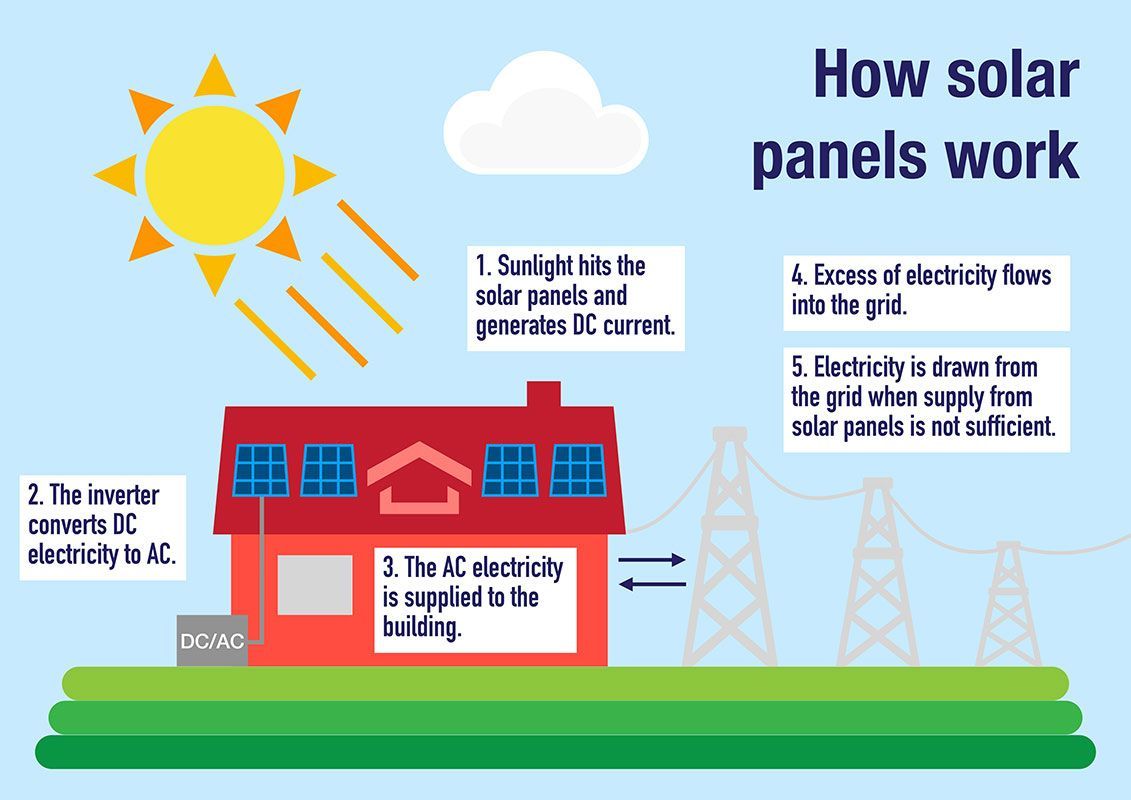Solar Energy 101

How Does Solar Power Work?
Before discussing all the benefits of solar energy, you may wonder how those solar panels will work once installed in your home. Here’s how solar energy works:
- Solar panels harness the energy from sunlight to create direct current (DC) electricity.
- Solar inverters convert DC electricity into alternating current (AC) electricity, which can be used in your home.
- Your electrical panel manages and distributes the AC electricity throughout your home.
- A utility meter connects your home to the electrical grid and tracks your electricity use. Any extra electricity not used or stored in a battery is then sent back out to the grid.
- In times of low sunlight, your panels may not generate enough electricity. At this point, the current is drawn from the grid to help power your home.
Solar Energy Benefits
Renewable Energy Source
Solar energy is a clean source of energy that can help reduce your carbon footprint. It’s accessible every day and will not run out.
Lowered Electrical Costs
Using solar energy will reduce your dependence on the electrical grid and ultimately reduce your home & business power bills.
Boost Home Value
Research shows that a home’s value increases with the installation of solar panels: around 4% higher on average, according to Zillow.
Low Maintenance
Solar panels have no moving parts, which means zero wear and tear. Additionally, warranties provide peace of mind for up to 25 years.
Read More About the Benefits of Solar Energy
Solar FAQs
If you have more questions, don’t hesitate to get in contact with our team. Just call us at (224) 427-6527 to get the answers you need.
